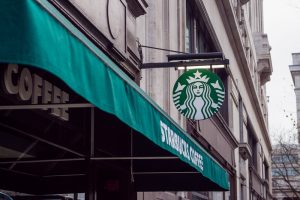In recent years, a surge in deceptive marketing claims has rattled the food and beverage industry as consumers demand truth in advertising. Starbucks, a global coffee giant, recently faced a lawsuit over its fruit-based drinks, highlighting a broader issue of misrepresentation within the industry.
Two Starbucks customers took legal action, asserting that Starbucks' Mango Dragonfruit Refreshers, Strawberry Açaí, and Pineapple Passionfruit lacked their namesake ingredients. The Manhattan federal court ruled in favor of allowing the case to proceed. Starbucks, however, contests the claims, arguing that some product labels refer to tastes rather than actual substances, a defense that has become common in such cases.
U.S. District Judge John Cronan acknowledged that a significant number of reasonable consumers could potentially be misled into believing that Starbucks Refreshers contain real fruit. This case is part of a growing trend where consumers are increasingly suing large food and beverage businesses for misleading advertising.
The issue isn't confined to Starbucks; numerous other well-known brands have faced similar allegations. From Burger King's downsized Whoppers to Taco Bell's filling-lacking Mexican Pizza, consumers are increasingly vocal about their dissatisfaction with misleading marketing.
Legal experts note that while companies are entitled to praise their products and make opinion claims, factual inaccuracies constitute false advertising. This distinction has led to a rise in lawsuits challenging the accuracy of product descriptions.
The prevalence of social media and the ease with which consumers can share their experiences have played a significant role in this trend. Kevin McTigue, a marketing professor, believes that the combination of consumer distrust and the ability to share experiences online has fueled the surge in litigation.
Perkins Coie, a law firm tracking such cases, reported a substantial increase in food and beverage class-action lawsuits in recent years. This trend, which started with 81 cases in 2014, has now skyrocketed to hundreds of cases annually. Legal experts speculate that the potential for significant attorney fees serves as an incentive for law firms to pursue even minor advertising misstatements.
While not every deceptive-marketing claim results in a monetary settlement, experts anticipate that the surge in cases will force corporations to exercise caution in their advertising strategies. As consumers become more vigilant, companies will likely face increased scrutiny, prompting them to prioritize accuracy and transparency in their marketing efforts.
In an era where consumer trust is paramount, these legal battles serve as a reminder that companies must prioritize honesty and accuracy in their marketing messages. The outcome of these lawsuits could reshape the future landscape of advertising standards in the food and beverage industry.






















